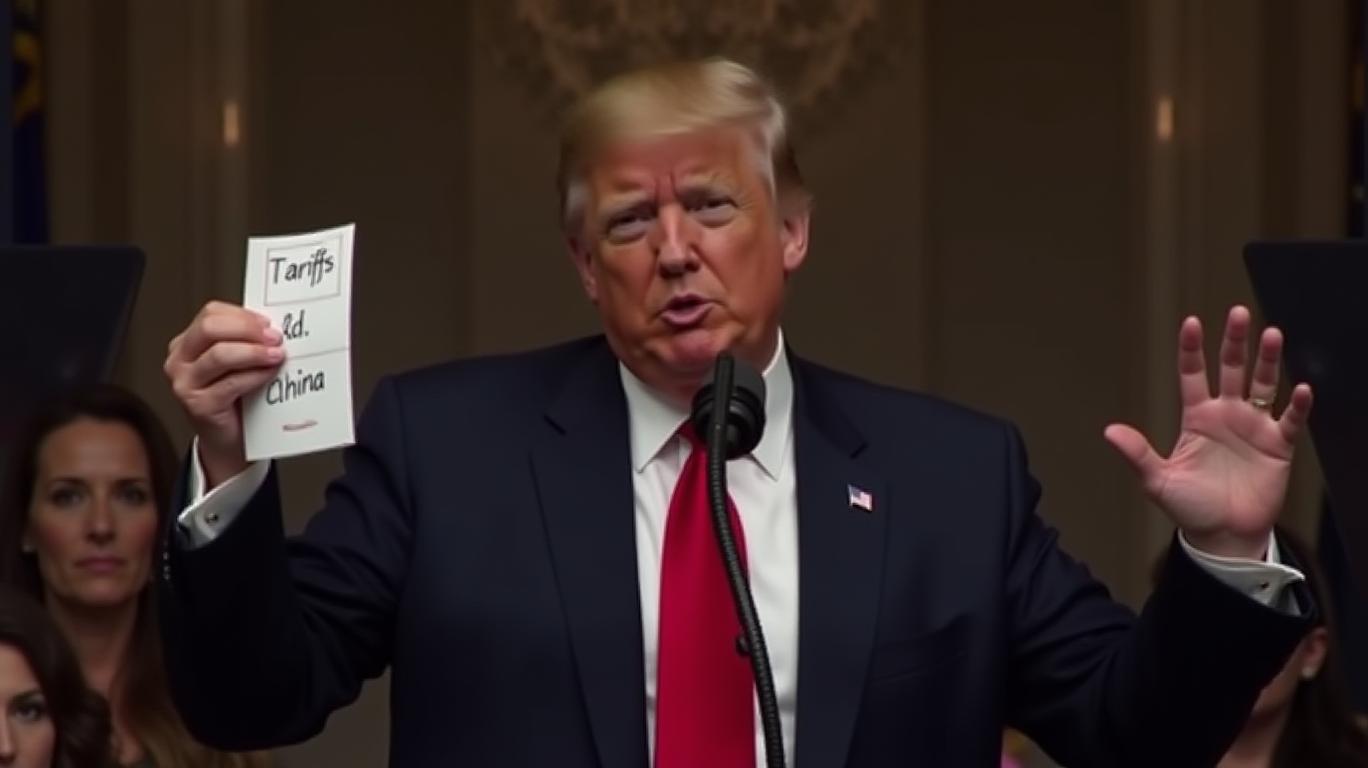Trump: US deficits with China, EU can only be cured with tariffs; tariffs are 'beautiful thing to behold'
ByAinvest
Sunday, Apr 6, 2025 7:25 pm ET1min read
Trump: US deficits with China, EU can only be cured with tariffs; tariffs are 'beautiful thing to behold'
In a recent interview, former President Donald Trump expressed his belief that the United States' trade deficits with China and the European Union can only be addressed through tariffs. He described tariffs as a "beautiful thing to behold," emphasizing their potential to stimulate domestic manufacturing and reduce dependence on foreign goods. This perspective has sparked a renewed debate on the economic impact of tariffs, particularly in the context of the ongoing trade tensions between the U.S. and its major trading partners.Trump's tariff policies have been a cornerstone of his economic strategy, aiming to protect American industries and create jobs. Proponents argue that tariffs can boost domestic production, reduce reliance on foreign imports, and increase the competitiveness of American-made goods. However, critics contend that tariffs can lead to higher prices for consumers, disrupt global supply chains, and potentially escalate into a full-blown trade war.
The economic impact of tariffs is multifaceted and complex. According to a report by the International Monetary Fund (IMF), tariffs can have both positive and negative effects on the economy. While they can stimulate domestic industries and create jobs, they can also lead to higher prices for consumers, reduce economic efficiency, and negatively impact international trade relations. The IMF estimates that a 10% tariff on all U.S. imports could reduce U.S. GDP by 0.5%.
Furthermore, the effectiveness of tariffs depends on various factors, including the specific industries targeted, the magnitude of the tariffs, and the response of trading partners. For instance, the Trump administration's tariffs on Chinese goods have led to retaliatory measures from China, which has in turn impacted U.S. exports and global supply chains.
In conclusion, while Trump's tariff policies have been a significant aspect of his economic strategy, their long-term impact remains uncertain. The debate on the effectiveness of tariffs is ongoing, with proponents and critics presenting valid arguments based on economic theory and empirical evidence. As the U.S. continues to navigate its trade relations with China and the EU, it is crucial to consider the broader economic implications and potential unintended consequences of tariffs.

Stay ahead of the market.
Get curated U.S. market news, insights and key dates delivered to your inbox.
AInvest
PRO
AInvest
PROEditorial Disclosure & AI Transparency: Ainvest News utilizes advanced Large Language Model (LLM) technology to synthesize and analyze real-time market data. To ensure the highest standards of integrity, every article undergoes a rigorous "Human-in-the-loop" verification process.
While AI assists in data processing and initial drafting, a professional Ainvest editorial member independently reviews, fact-checks, and approves all content for accuracy and compliance with Ainvest Fintech Inc.’s editorial standards. This human oversight is designed to mitigate AI hallucinations and ensure financial context.
Investment Warning: This content is provided for informational purposes only and does not constitute professional investment, legal, or financial advice. Markets involve inherent risks. Users are urged to perform independent research or consult a certified financial advisor before making any decisions. Ainvest Fintech Inc. disclaims all liability for actions taken based on this information. Found an error?Report an Issue



Comments
No comments yet